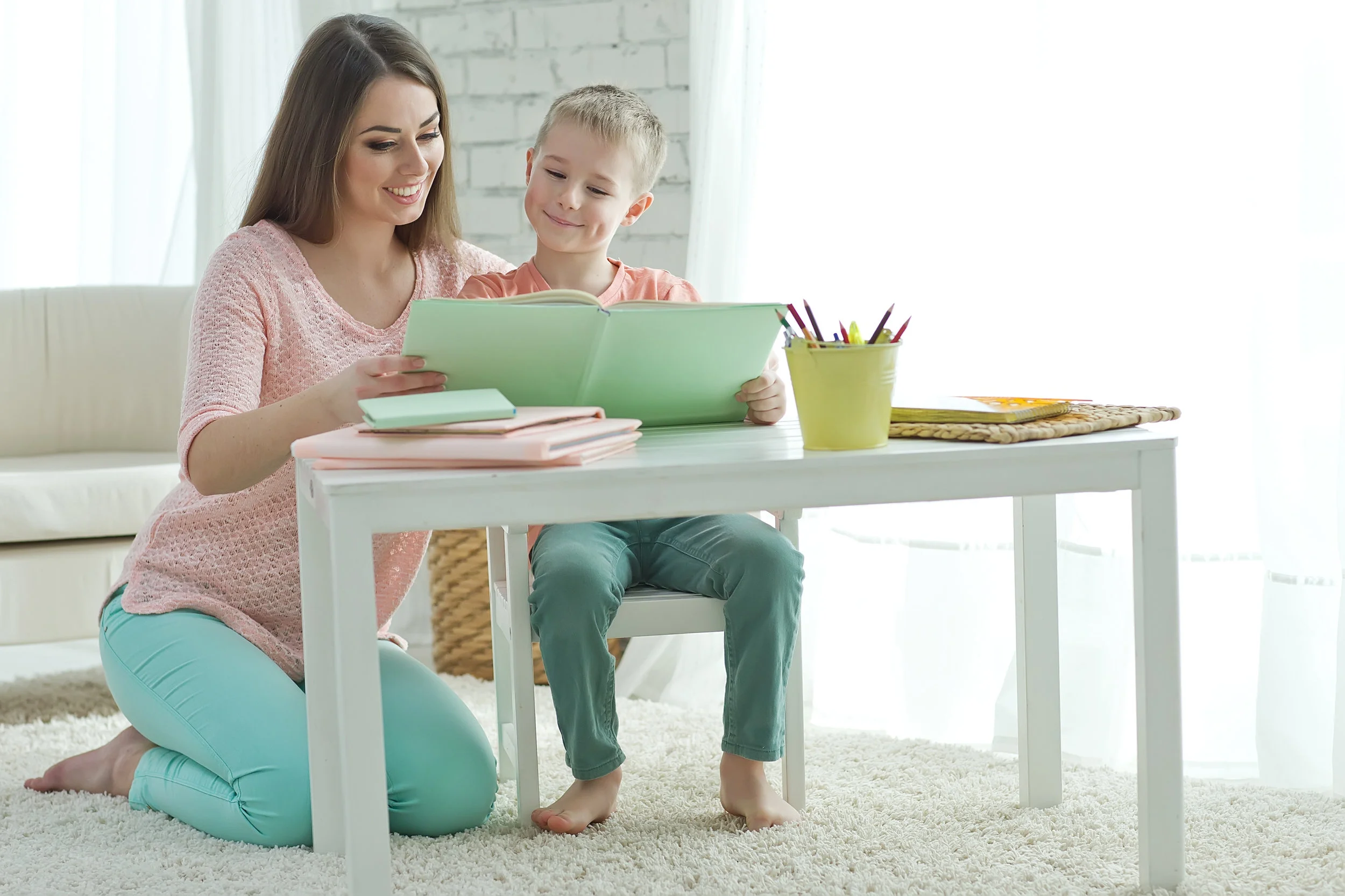When Is Online Learning Recommended for Kids?
/It is physically, emotionally, and intellectually superior to teach your kids without computers.
Yet, there are times when we can justify online learning for our kids, but these times should be the exception, not the rule.
The Problem with Screen Use
Sitting in front of a computer for long periods during the day is unhealthy, regardless of age. Yet, it is even worse for children because they are still developing the habits which will become their way of life.
Their brain is also developing and needs exposure to environments that don’t hinder its development.
We want our children to be physically active, socially competent, and intellectually sharp.
To accomplish these goals, we need to put our children in environments where they learn to enjoy physical activity, engage socially with people of all ages, and develop their minds, including their memory, which is a vital component of intelligence.
IT'S ALL ABOUT HABITS
Yet, a child who develops the habit of sitting in front of a computer for long periods during the day is not getting physical activity, social stimulation, or developing his memory.
He is developing the habit of using the computer, which requires almost no moment on the user's part. It is an anti-social activity requiring no social skills and virtually no use of our memory.
As one young person said, "Who needs a memory when we have all the information we need at a push of the key?"
“Neurologist and Oxford professor Baroness Susan Greenfield believes that video game addiction can cause a form of what she describes as “dementia” in children.”
Given that our memories are a part of our brains and that a good memory is always present in highly intelligent people, it would be prudent to develop and protect our memories by using them.
We don't want to waste our or our children's minds sitting in front of screens tapping keys.
The Social Factor
Another parent noted that "online pupils tend to abandon manners that most would adhere to in the classroom."
One of the concerns, when a family is considering homeschooling, is the social factor. "Will my child develop good social skills?" Yet, we put our kids in front of computers and call that homeschooling without connecting the dots.
Online learning is not homeschooling; it is anti-social schooling.
Kids growing up in anti-social environments will most likely become anti-social adults. Online homeschooling, with kids sitting in front of computers for too many hours per day, will produce anti-social kids.
Developing social skills and learning to enjoy other people's company is a result of
1) being taught manners when young, so we don't offend others, and
2) having ample opportunity to practice social skills, so we learn to be comfortable and confident in social situations.
We also learn to enjoy the company of other people, and we discover much about ourselves by interacting with others.
We are social creatures; living these technology-consuming, anti-social lives is unnatural!
Dumbed-Down Schooling
An in-person teacher provides a socially-active environment for children where they engage and develop their social skills. A teacher also creates an intellectually-stimulating environment for children where they can ask questions and search for answers. They hold books and learn to read well so they can tackle subjects independently.
If we aren't raising kids who know how to ask the right questions, who know how to find the answers, who know how to teach themselves, then, as Dorothy Sayers said in her essay on education, "...whatever instruction fails to do this is effort spent in vain."
Online learning is effort spent in vain.
“Steve Jobs was not a proponent of tech in the classroom. His kids read real books. ”
Even Steve Jobs was on to the problem with technology and children. Have you read his interview about it in the New York Times?
Lastly, let me briefly mention the ill effects of screen use on our physical, emotional, and intellectual health, according to the Mayo Clinic:
Obesity
Inadequate sleep schedules and insufficient sleep
Behavior problems
Delays in language and social skills development
Violence
Attention problems
Less time learning
With attention problems also comes learning problems. Who’s fooling who?
“In a 2010 Iowa State University study published in the journal Pediatrics, viewing television and playing video games each are associated with increased subsequent attention problems in childhood.”
We know kids have died from blood clots after gaming for too long. We want to protect our kids from the habit of computer use until they are older when they can no longer avoid it. Hopefully, they'll be able to exercise sound judgment and self-control by then.
When can we let our kids learn online?
We can let our kids learn online when we have exhausted all other options.
Below the age of nine, I would not let my child near a computer. The brain is still in a crucial stage of development until a child reaches adolescence, when the brain does a self-pruning of any weak pathways.
Age Nine
At nine, I would make an exception and let my child study Latin for half an hour online, one day a week. The rest of the week, I would do my best to help my child study, using the lessons for instruction and inspiration.
Age 13
Around the age of thirteen, if there were any subjects my child needed, such as more advanced mathematics, and I could not teach them, I would hunt high and low for a teacher.
I would try to find other homeschooling parents who might understand the subject and could teach my child. I might ask qualified neighbors or put an ad up in a local bookstore for a tutor. I would do everything I could to find a natural teacher.
“In a 2015 University of Utah School of Medicine brain imaging study published in the journal Addiction Biology, brain changes were measured in video gamers that are correlated with increased distractability, impulsivity (hallmarks of addiction and ADHD), schizophrenia and autism”
Once I had exercised all options, I might look online if I still could not find a teacher. But my goal would be to keep my child off the computer if I could help it, and if I could not help it, to restrict online learning as much as possible.
Age 16
If my child were older, say 16, according to my state's law, I might consider graduating him from high school and moving on to college or dual-enrollment in our local community college.
College is our best option for an older child when in-person teachers are unavailable.
☞ Disclaimer: This is not a politically-correct blog.
Don’t miss our free download, Ten Books Every Well-Educated Child Should Read.
When you join the Smart Homeschooler Academy online course for parents, I guide you in homeschooling with the classics to raise intelligent children without computers. You can enroll using the link below and be confident knowing you can and will homeschool successfully.
For parents of children under age seven who would like to prepare their child for social and academic success, please begin with our online course, Raise Your Child Well to Thrive in Life and Excel in Learning.
Elizabeth Y. Hanson is an Educator, Homeschool Emerita, Writer, and a Love and Leadership Certified Parenting Coach with 20+ years of experience working in children’s education.
Utilizing her unusual skill set, Elizabeth has developed a comprehensive understanding of how to raise and educate a child. She devotes her time to helping parents get it right.
She is available for one-on-one consultations as needed.






















